Malta golden visa: Guide for UK residents
Explore this guide to the Malta Golden Visa for UK residents. Learn about property requirements, costs, and benefits.
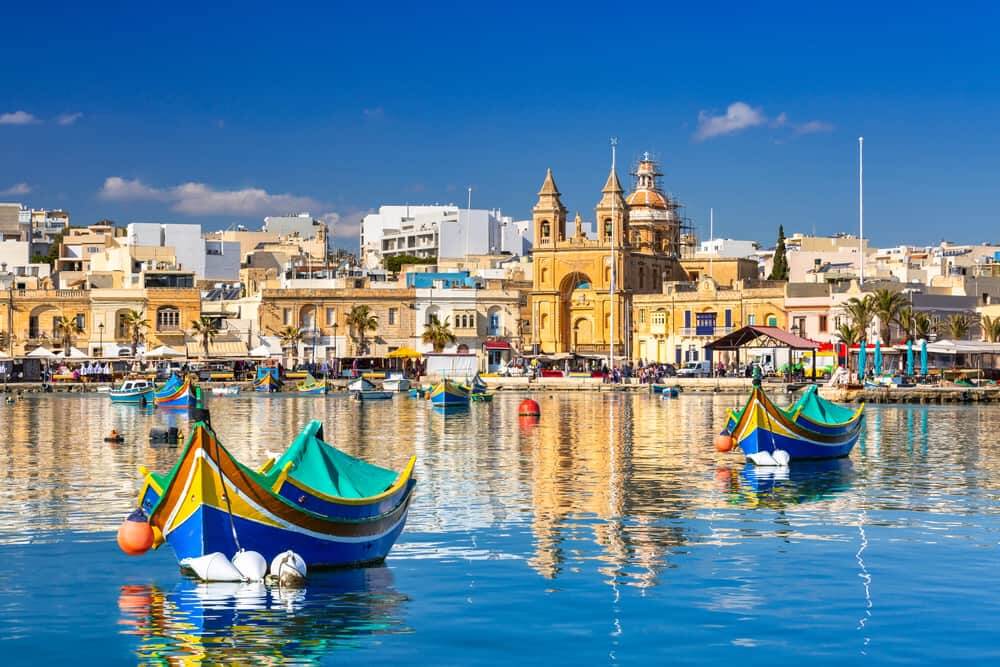
With its warm Mediterranean climate, excellent living standards and fresh, delicious seafood, it’s easy to see why so many people are dreaming of moving to Malta. It’s also one of the more affordable spots in Europe when it comes to cost of living. This beautiful island archipelago is a popular spot for UK retirees, along with expats looking to work, play and soak up the sun.
If you’re considering a move to Malta, you’re going to need to find somewhere to live. Read on for our essential guide on how to buy property in Malta as a foreigner, including average property prices, mortgage tips, fees and taxes, and much more. We’ll also touch on the best ways to cover overseas property costs, such as using the Wise multi-currency account. But more on that later.
Please see the Terms of Use for your region.
Like many countries worldwide, Malta’s economy - and therefore its property market - has been affected by the coronavirus pandemic in 2020.
Before the global health crisis, Malta’s property market was experiencing small but steady growth, with prices increasing by nearly 12% in 2018 and just 2.5% in 2019¹.
But despite the pandemic, the country’s property market remained resilient in 2020, as prices rose by 5%¹. Some experts are now predicting that as Malta’s economy starts to recover and it reopens its borders fully to tourists, both demand and prices for property will rise quickly². So, now could be a good time to snap up a cheaper property.
You don’t need to be a resident of Malta to buy property there, but you will need something known as an AIP (Acquisition of Immovable Property) permit. There’s a fee to pay, and you can expect to get your permit within around 35 days.
For both foreigners and EU citizens buying property in Malta, there’s a one property limit. This means you can only own one house or apartment, except if you buy in a Special Designated Area (SDA). In these luxury areas, resorts or developments, where foreign investment is encouraged, you can buy as many properties as you like - without the need for an AIP.
The good news is that British expats can still buy property in Malta now that the UK has left the EU.
The same rules will apply to Brits as for all non-EU residents, so you’ll need to get an AIP permit and will be limited to just one property, unless you focus your property search on a Special Designated Area.
For most foreign buyers, it’ll be necessary to get the relevant visa or work permit to stay in Malta longer than 90 days. But if you have enough cash in the bank, there is a scheme through which you can buy property in Malta and get residency status.
It’s known as the Malta Citizenship by Investment Program⁴, and it’s aimed at high net worth individuals. If you can invest up between €600,000 and €750,000 in the scheme, stay in Malta for between 12 and 36 months (the more you invest, the lower the residence period required) and invest a further €700,000 in residential real estate - you’ll be eligible for citizenship and a Maltese second passport after 1-3 years.
The cost of real estate in Malta depends largely on what type of property you buy, and where it is.
To give you an idea of how much property costs in Malta, let’s take a look at average prices per square metre for apartments, terraced houses and townhouses across the island’s different regions:²
| Region | Price per sq.m - apartment | Price per sq.m - terraced house | Price per sq.m - townhouse |
|---|---|---|---|
| Gozo - incl. Rabat | €1449 | €2334 | €1736 |
| Northern Region - incl. St Paul’s Bay | €2319 | €3927 | €3039 |
| Northern Harbour- incl. Sliema | €3126 | €3543 | €3385 |
| South Eastern Region - incl. Marsaskala | €1986 | €2831 | €2366 |
| Southern Harbour - inc. Valletta | €2322 | €2849 | €3023 |
| Western Region - incl. Mdina and Zebbug | €2174 | €3754 | €3019 |
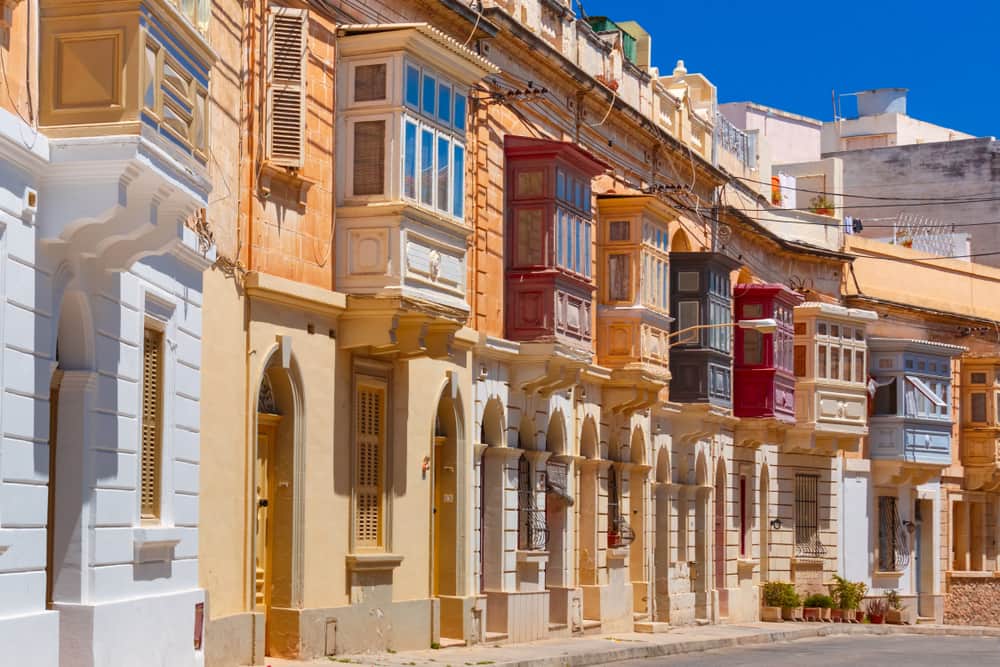
If you’re looking for great food, shopping and nightlife, head to one of Malta’s towns or cities to start your property search. Sliema, Gzira and St. Julian’s are known for their many restaurants and bars, vibrant atmosphere and beautiful coastal scenery.
Have a little more to spend on your new home? Malta’s capital Valletta has stunning architecture and a thriving cultural scene, and the island’s international airport isn’t too far away. Or you could consider buying a home in Malta’s former capital Mdina, in the Northern Region. This tourist hotspot has lots of historical wonders to discover, and is blissfully quiet thanks to its car-free city centre.
Those looking for a more laid-back, countryside lifestyle should look for property for sale in places like Zebbug and Rabat, along with the northern island of Gozo. Here, you’re more likely to find a tranquil and traditional village atmosphere, away from the bustle of the city.
There are several avenues you can take to find a property in Malta:
An estate agent, if used, generally works on behalf of the seller or vendor - who will also pay the commission fees.
If it’s the first time you’re buying a property in Malta or overseas, then a specialist buying agent or international broker might offer helpful advice and insight into the local market. However, there will usually be a fee to pay for this service, and you should make sure you’re clear on what you’ll get for your money, as prices can vary.
One of the best ways to kickstart your property search is online. Here are some websites and portals to try:
How do I choose the right property?
You'll have a wide choice of chic new-build apartments, historic homes, terraced houses, maisonettes, villas and converted palazzos in Malta. In the densely built-up cities like Sliema and St. Julian’s, you’re more likely to find apartments available for sale.
Outside of the popular areas of Malta, you’re likely to get more space and better value - especially on Gozo where prices are typically lower than the rest of the country.
But if you want a traditional Maltese home, head south or southeast. Here, you’ll find historic houses that can be as much as 400 years old.
It’s a smart idea, though not required by law, to get a survey done on any property you choose, before committing to buying it. Older houses in particular - such as the traditional Maltese stone houses you’ll find in villages and rural spots - can have hidden problems which are costly to fix. Your solicitor can help you find a suitable surveyor.
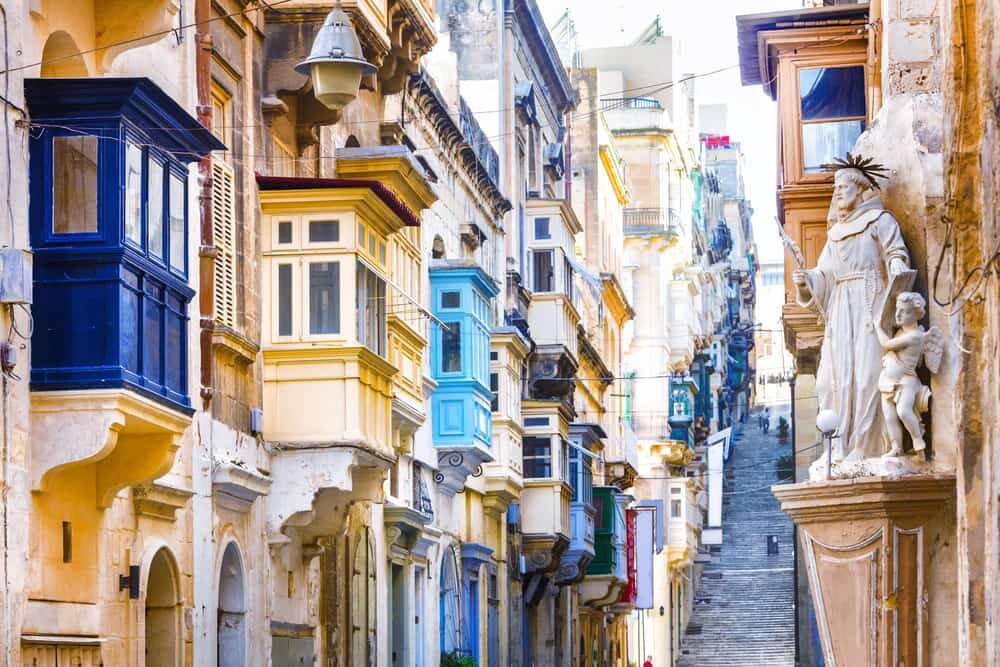
The process of buying a property in Malta is relatively straightforward, and similar to buying a home in other parts of Europe. Here are the key steps⁵:
To get a mortgage from a Maltese bank as an expat, you must meet certain conditions. These include the following:
Jump through these hoops and you can expect a loan-to-value ratio (LTV) of around 80% as a foreign borrower.
You’ll usually need to provide a number of documents to support your mortgage application, including proof of ID, address and income (including payslips and bank statements). You may also need the preliminary agreement for your property purchase.
Now, aside from the property price, how much does it actually cost to buy a home in Malta? There are a number of taxes and fees payable by the buyer, including notary fees, for home purchases in Malta.
Here are the main costs you need to factor into your budget:⁷
If you’re planning to search for and buy your dream property in Malta while still based in the UK, you’re going to need a secure and low-cost way to send money internationally. You’ll have the deposit and stamp duty to pay, along with notary and solicitor fees. That’s a lot of money to safely transfer from one country to another.
Banks tend to charge high fees for international transfers. This, along with currency conversion fees and mark-ups on exchange rates, can make your property purchase cost far more than it needs to.
Use the Wise multi-currency account instead, and you can whizz money from the UK to Malta for tiny fees and the fair mid-market exchange rate. And, it could potentially be cheaper than using your bank. There are no hidden fees, and transfers are both fast and secure. You can even track them on your phone using the Wise app.
And for your peace of mind, it’s good to know that Wise uses high-tech security and anti-fraud measures to protect your money.
Please see the Terms of Use for your region or visit Wise fees & pricing for the most up-to-date information on pricing and fees.
In this guide, we’ve covered just about everything you need to know about buying property in Malta. You should now know where to start looking for your dream home and crucially, where you can afford to buy. Plus, you’ll have an idea of the buying process, including how to get a mortgage. You’re all set to kick off your property search - good luck!
Sources used for this article:
Sources checked on 20-July-2021.
*Please see terms of use and product availability for your region or visit Wise fees and pricing for the most up to date pricing and fee information.
This publication is provided for general information purposes and does not constitute legal, tax or other professional advice from Wise Payments Limited or its subsidiaries and its affiliates, and it is not intended as a substitute for obtaining advice from a financial advisor or any other professional.
We make no representations, warranties or guarantees, whether expressed or implied, that the content in the publication is accurate, complete or up to date.

Explore this guide to the Malta Golden Visa for UK residents. Learn about property requirements, costs, and benefits.

Discover everything you need to know about inheritance tax in Malta. Our comprehensive guide covers the rates, who pays, how to calculate, and much more.

Read our complete guide to the Malta digital nomad visa, covering fees, documents, eligibility requirements and application process.

Thinking of applying for a Maltese passport? Read our guide on the Malta citizenship by investment programme, including the requirements, costs and benefits.
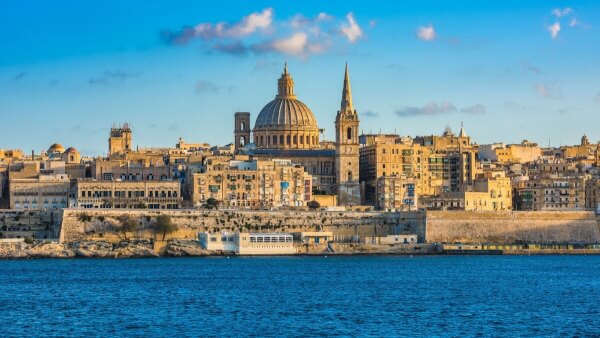
A list of the top banks in Malta, including Bank of Valletta, HSBC, APS Bank, FIMBank, MeDirect Bank and Lombard Bank Malta.
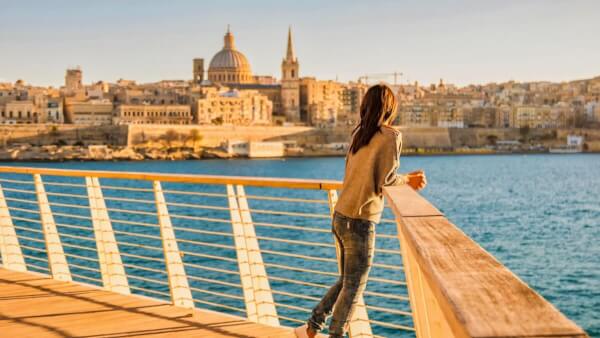
Everything you need to know about moving to Malta from the UK. Read about visas, popular expat destinations, healthcare and more.